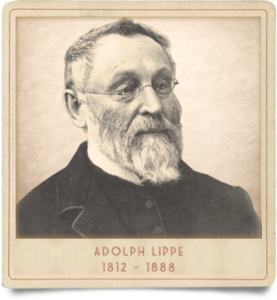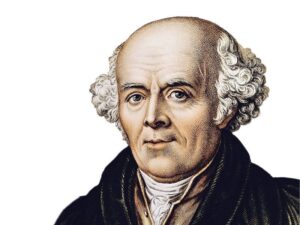
The extraordinary results obtained with the use of the high fluxion potencies in patients with incurable conditions
More expert advice from one of homeopathy’s very best – Dr. Andre Saine…
Homeopathy appeals, not only chiefly, but solely to the verdict of experience—‘repeat the experiments,’ it cries aloud, ‘repeat them carefully and accurately, and you will find the doctrine confirmed at every step’—and it does what no medical doctrine, no system of physic, no so-called therapeutics ever did or could do, it insists upon being ‘judged by the result.’ ~ Samuel Hahnemann
On these pages, one will find a series of articles written by many of the best homeopathic physicians to have ever practiced. These authors’ insights are of great value because of the extraordinary clinical successes they enjoyed during their medical careers. They are published or republished here to help all who practice homeopathy greatly improve patient outcomes.

More expert advice from one of homeopathy’s very best – Dr. Andre Saine…

Expert advice from one of homeopathy’s very best – Dr. Andre Saine…

Our three fundamental principles are—
1. The law of the similars;
2. The single remedy;
3. The minimum dose.
These three fundamental principles constitute an essential trine,—an inseparable unit,—and the separation of either one involves the rejection of all.

This paper is supplementary to that great paper by the late Dr. von Boenninghausen on Hahnemann’s Three Precautions, published first in the Neues Archiv, and translated in the American Homoeopathic Review. It is addressed to such members of the medical profession who have accepted and appreciate his three precautions against these three errors.

This chapter is very important as it can serve as a red flag warning to aspiring homeopaths and all existing and future leaders of homeopathic institutions so that history doesn’t repeat itself. First, for all aspiring homeopaths, this chapter can guide learning how to distinguish pure homeopathy from misrepresentations and to know when to walk away from any teachings that are not pure homeopathy. Second, for any current or future homeopathic institution, this chapter presents a great lesson, which is to never ever, I repeat, to never ever let any misrepresentation infiltrate our institutions, namely our schools, clinics, professional associations, regulating boards, supporting organizations, journals, publishers, etc.

In Sect. 18 of this much neglected book, we read “that the totality of the symptoms is the sole indication for the selection of remedies.” This is true if we understand that in this totality are contained the symptoms which control the choice. It is not true if by this be meant that all the symptoms in this totality are of equal authority in their control of this choice. That this is not what the author intended to teach is made quite plain by Sect. 153, which may be taken as a commentary on Sect. 18.
To make a donation to the American Institute of Homeopathy (AIH), please visit our donation page.

American Institute of Homeopathy
c/o George Guess MD DHt
909 Summit View Lane
Charlottesville, VA 22903